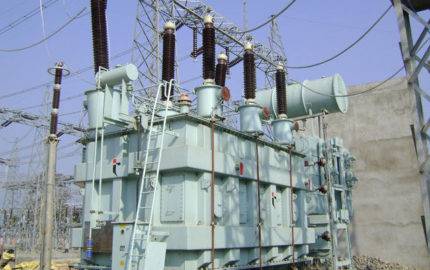The Transmission Company of Nigeria (TCN) has begun the process of restoring the national grid, commencing with the Shiroro Substation. Despite progress being slow, the Shiroro Substation has been partially restored, enabling the supply of power to the Katampe substation. This development follows a nationwide blackout that occurred yesterday, caused by the organized Labour’s planned strike, which led to the shutdown of the National Grid.
The TCN has been working tirelessly to restore the grid, although progress has been gradual. The Nigerian Labour Congress has called off the strike, but the impact of the blackout is still being felt. The TCN is committed to ensuring a stable supply of electricity to the nation, and its efforts are geared towards achieving this goal. As the restoration process continues, the TCN is working to address the challenges posed by the blackout, and to prevent such incidents from occurring in the future.
Shiroro Substation Partially Restored
The partial restoration of the Shiroro Substation marks a significant milestone in the efforts to restore the national grid. This development enables the supply of power to the Katampe substation, a crucial step towards stabilizing the grid. The Transmission Company of Nigeria (TCN) has been working tirelessly to repair the damage caused by the recent strike, and this progress is a testament to their dedication and hard work.
Although the progress of electricity distribution is still slow, the TCN is committed to ensuring a stable supply of power to meet the nation’s demand. The partial restoration of the Shiroro Substation is a positive step forward, and the TCN continues to work diligently to address the challenges posed by the blackout. As the restoration process advances, the Transmission Company of Nigeria remains focused on providing a reliable and sustainable supply of electricity to the nation.
Nationwide Blackout Caused by Labour Strike
The nationwide blackout that occurred yesterday was a result of the organized Labour’s planned strike, which led to the shutdown of the National Grid. The strike had a profound impact on the country’s power supply, leaving a significant number of citizens without electricity. The Transmission Company of Nigeria (TCN) has been working tirelessly to restore the grid since the strike ended, aiming to revive the power supply and mitigate the effects of the blackout.
The Nigerian Labour Congress has called off the strike, but the aftermath of the blackout is still being felt across the nation. The TCN is committed to ensuring that such an incident does not recur, and is working diligently to identify and address the underlying causes of the blackout. By learning from this experience, the TCN aims to enhance the resilience and reliability of the National Grid, providing a stable and sustainable power supply to meet the nation’s needs.
Shiroro Hydropower Gradually Increasing Output
Shiroro Hydropower’s gradual increase in output is a significant milestone in the quest to restore the national grid. This development enables the supply of power to the transmission lines, a crucial step towards stabilizing the grid. The Transmission Company of Nigeria (TCN) is working diligently to ensure that the grid is robust and can meet the nation’s electricity demands.
The gradual increase in output from Shiroro Hydropower is a testament to the TCN’s tireless efforts to restore the grid. The TCN is committed to providing a stable supply of electricity to the nation, and this progress is a positive step towards achieving that goal. As the output from Shiroro Hydropower continues to increase, the TCN remains focused on ensuring a reliable and sustainable power supply, leveraging this momentum to drive progress in the restoration process.
Restoration Progress Slow but Steady
The restoration of the national grid is progressing steadily, albeit at a slower pace than anticipated. The Transmission Company of Nigeria (TCN) is working diligently to ensure that the grid is robust and capable of meeting the nation’s electricity demands. Despite the challenges, the TCN remains committed to restoring the grid, and the slow but steady progress is a testament to their unwavering dedication.
As the restoration process continues, the nation can expect a stable supply of electricity in the near future. The TCN’s efforts are geared towards providing a reliable and sustainable power supply, and the progress made so far is a positive indication of their commitment to achieving this goal. With the grid slowly but steadily coming back online, the nation can look forward to a return to normalcy and a reliable supply of electricity to power homes, businesses, and industries.
TCN Committed to Restoring National Grid
The Transmission Company of Nigeria (TCN) is steadfast in its commitment to restoring the national grid and ensuring a stable supply of electricity to the nation. With unwavering dedication, the company is working tirelessly to repair the damage caused by the recent strike, striving to ensure that the grid is robust and capable of meeting the nation’s power needs.
The TCN is grateful for the patience and understanding of the Nigerian people and assures them that the grid will be fully restored soon. This commitment to restoring the national grid is a testament to the TCN’s unwavering dedication to providing a stable supply of electricity to the nation. With the restoration process nearing completion, Nigerians can expect a full restoration of the grid soon, marking a return to a reliable and sustainable power supply that drives economic growth and development.
Table of Contents
Discover more from OGM News NG
Subscribe to get the latest posts sent to your email.













